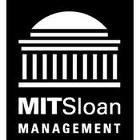MIT MBA Students: Amazon, Google, and T-Mobile Are Hiring, Expedia Isn’t; Microsoft “Super Interesting,” Apple Is “Sterile”


If you want to know which companies are looking to hire top young business talent around town, just ask the group of 20 or so first-year MBA students from MIT Sloan School of Management. The students from Cambridge, MA, are in Seattle this week looking to make contacts for jobs and summer internships.
It’s all part of the annual “tech trek” program in which some 150 Sloan MBA students split up to visit companies in Seattle, Silicon Valley, and the Boston area. The students on the Seattle leg visited Adobe, Microsoft, and RealNetworks yesterday, and they are at Amazon, Starbucks, and T-Mobile today.
I met up with a group of them over drinks last night. They had a refreshingly candid perspective on job prospects at Seattle tech companies, and some valuable insights into the local tech-business scene. (Almost worth the $43 parking ticket I got from the BluWater Bistro lot—it’s been one of those weeks.)
“The job market is better than last year. Companies are very receptive, and positions are open,” says Sloan student Hilda Tang, a former management consultant in New York City and a native of Vancouver, BC. Tang helped organize this year’s trip to Seattle, together with fellow first-year Ryan Thurston, a former design engineer and product manager at Seattle-based Impinj. “Everyone’s hiring, but they’re hedging their bets,” Thurston says.
Kathryn Wepfer, another Sloan student, previously worked for four years at General Electric in Massachusetts managing a technology development program (defense work). Wepfer went on the Silicon Valley leg of the trip earlier this week, where Sloan students visited VMware, Cisco, Google, Apple, LinkedIn, Yahoo, and Zynga. Last year, Google and Yahoo didn’t participate, as their hiring was on hold. This year, the students say Google is hiring selectively for positions in finance, operations, marketing, and business development; Yahoo didn’t impress, with one student commenting, “What are [they], really?”
It sounds like some companies were much better at marketing themselves to students than others. The strongest reaction I got was when I asked about their visit to Apple (in Silicon Valley). “Everyone came away totally creeped out,” one student said, adding that the company came off as “secretive” and “sterile,” and that during their visit, at least one Apple employee admitted it wasn’t a great place to work while Steve Jobs was on leave.
This student followed up with me later to say, “We heard from people in finance, marketing, and product management—everyone hands down was very excited about their job and being part of the Apple community. It’s a very attractive company to me, but it is somewhat difficult to see the reality of the secretive culture that may be necessary to maintain Apple’s ability to create products that change the world. I, and I think the rest of the group, appreciated their openness and honesty.”
On the Seattle front, I had to wonder about Microsoft, which is coming off a year of big layoffs. But it sounds like the Redmond company has MBA internship slots open in product planning and product management, in its Server and Tools division, and others. And it certainly knew how to put on a show for the visiting students. “Microsoft was super interesting,” Wepfer says. “They took us through their ‘home of the future.’” (One other perk: Bill Gates used to have a gathering at his house for all the summer interns; now Steve Ballmer does it.)
Of course, this is not necessarily indicative of the broader hiring situation at the company. Sloan student Andrew Lei points out that Microsoft has a longstanding relationship with Sloan. “I’d think they’d want to maintain the internship program,” he says. “Perhaps a year or two from now, [the economy] will be fine, so they don’t want to stop their internship program now.”
Meanwhile, impressions of RealNetworks were mixed. Students I talked to were somewhat surprised to learn of the company’s increased focus on the business-to-business market. One said it seemed “more like a startup, with a lean cost structure.” The company indicated it will hire about eight to 10 MBA students out of a total of 20 to 30 interns, including engineers. But one student said she didn’t feel people came away excited, in part because the company’s value proposition is “a little scary…They seem unstable, or handcuffed to AT&T and Verizon.”
Reactions to Adobe, which has about 400 employees in Seattle’s Fremont neighborhood, seemed a bit more positive. “They’re working on very interesting problems,” Thurston says. “They seemed more competitive [than other companies].” (I took this to mean its corporate culture, not its market position, or pay.) Tang adds, “They have very good project management.” The students said Adobe typically hires about 20 summer interns in its Seattle office, but it didn’t have specific positions open yet.
That’s better than Expedia, which didn’t host the students on this visit. (It has in previous years.) Apparently the company isn’t hiring MBA interns this year—at least not from MIT.
One other issue came up: several students said that certain companies, including Adobe and Cisco, are not sponsoring international students for visas this summer. (Juliya Alvarez, a recruiter at Adobe, disputes this claim, saying Adobe is sponsoring international students and always has.) Presumably it’s an issue for companies because of the costs and the possible reputational risk associated with employing foreign nationals, Tang says. On the plus side, several students singled out Microsoft, saying it “works really hard” to sponsor international students.
Today’s meetings will include Amazon, which is hiring for interns in operations and product management, and Starbucks, where the students are meeting with a representative from the company’s global staffing group. Meanwhile, T-Mobile is already interviewing intern candidates today for a position in finance.
But overall, the feeling about the job market is that “there might be positions,” Thurston says. “‘Here’s our golden carrot, here’s what’ll make you happy, but we don’t have our job postings yet.’” What’s more, none of the companies yesterday addressed the role and value of MBA degrees in the current recession—what Thurston calls “the big elephant in the room.”
“For traditional industries like finance, an MBA will prepare you,” Thurston says. “For technology, it’s more in your hands. You’ve got to do the groundwork, you have to reach out to companies, leverage your network, talk to the right people, and then land the right internship. Then it’s like a three-month job interview. It’s definitely not a good market for people looking for work—people with no experience coming out of an MBA program.”
Tang adds, “But an MBA will prepare you for soft skills. A lot of roles have no direct reports. You have to have influence and get people to agree with your ideas, persuade them. An MBA prepares you for that leadership skill.”







发表评论 评论 (3 个评论)